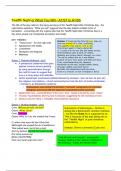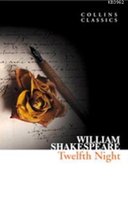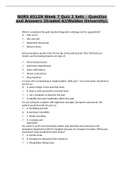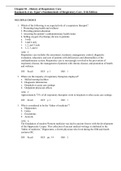Summary
Summary Twelfth Night - CONTEXTUAL ANALYSIS WITH KEY QUOTES
- Course
- Institution
- Book
BETTER THAN SPARKNOTES! The only Twelfth Night cheatsheet on the web to include key quotes alongside a FULL synopsis of the text. Guarantee exam success with this pack - regardless of your exam board. FEATURES: - Full Synopsis - Twelfth Night Key Quotes - Context - what was life like in El...
[Show more]







